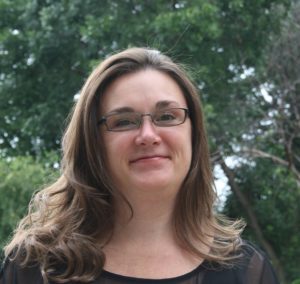
As a skilled nursing provider, billing and reimbursement are important considerations to ensure quality patient care and adequate compensation. Skilled nursing organizations are at a tipping point with facilities operating on razor-thin margins, not optimizing their current collections, and now facing a proposed $320 million Medicare cut in 2023.
Maximizing your revenue requires a coordinated team that understands the coding process and is committed to optimal patient care. Maintaining consistent schedules and communication among team members can ensure that your facility is properly compensated for the high-quality care you provide.
Streamline your billing process for faster reimbursement
Nursing home administrators are always seeking ways to improve their facility’s bottom line. Nurses play a vital role in the revenue cycle management (RCM) process. Understanding the process and staying current on coding and billing changes can guarantee that your facility is reimbursed accurately and efficiently.
Accurate and timely revenue cycle management requires constant interdisciplinary team coordination and communication with a shared vision for accurate coding and optimal patient care. Creating and adhering to an interdisciplinary team schedule results in a high level of teamwork and the highest level of care. This will prevent important tasks from falling through the cracks, causing delays in care and billing mistakes. Additionally, developing a consistent schedule for conducting aging reviews and claim follow-ups will help identify potential problems so they can be resolved.
Use technology to your advantage to improve efficiency and accuracy
Technology can be a powerful ally in streamlining the revenue cycle for skilled nursing facilities. By automating workflows and leveraging analytics, SNFs can improve efficiency and accuracy while reducing errors and maximizing reimbursement.
Using analytics to regularly review the health of your revenue cycle, while tracking and trending progress will identify areas for improvement to streamline the billing process for faster reimbursement. Having a fully integrated electronic health record (EHR) allows clinical data to seamlessly flow into the billing revenue cycle and saves time and money by reducing errors and improving efficiency.
Utilizing technology to its fullest potential is key to optimizing the revenue cycle for skilled nursing facilities. Built-in RCM workflows help skilled nursing facilities maximize reimbursement while streamlining the billing process. By leveraging analytics to regularly review the health of your revenue cycle, you can identify areas for improvement and track progress over time. By automating workflows, leveraging analytics, and integrating clinical data, SNFs can improve efficiency, reduce errors and maximize reimbursement.
Another factor is work-to-zero task lists, so all tasks are completed accurately and on time. This frees providers to focus on areas requiring attention and not on issues already on track, saving time that can be spent with residents.
Keep an open line of communication with payers and patients alike
Verifying insurance and coverage information for each patient is critical and should be done early and be a continuous process throughout the patient’s stay. Knowing the right payer to bill, and the payer’s billing requirements guarantees that your institution receives payment for your services.
Sharing this information with patients and their families is essential, so they will be aware of eligibility changes and their responsibility for costs. All billing policies, payer coverage responsibilities and schedules should be documented and communicated to patients, responsible parties and families as applicable.
Set goals for improvement and commit to ongoing evaluation
Your goals should align with increasing positive patient outcomes that can be measured and tracked using analytics. Setting and attaining accounts receivables goals by payer, scheduling and completing aging reviews, and claim follow-up, will eliminate unnecessary problems. Survey your staff, patients and their families. When these groups all agree that the care provided is the best, a provider will be proud of their hard work and dedication.
Regularly monitor and review patient outcomes using analytics to ensure you’re meeting goals and making progress. Look for opportunities to improve patient care while reducing costs. Staying focused on goals means you will deliver quality care and generate the revenue required to sustain and grow your organization. Critical thinking and creativity are key in developing new approaches and solutions.
Assure that EHR experts in your organization stay current on new features and functionality to improve employee job satisfaction and quality of care, improve reimbursement, and provide training to all new employees after each release.
The financial and regulatory aspects of skilled nursing are growing more complex. Having a team dedicated to the optimization of an organization’s revenue cycle can also be challenging to support amidst the current staffing shortage. Without the right people, processes and technologies, skilled nursing organizations will struggle with the impending financial challenges.
It’s important to remember that expert help is available outside of internal resources to help identify issues in your revenue cycle management, improve cash flow and operate more efficiently. Outsourcing RCM services is an augmented approach that many are beginning to adopt to help streamline the revenue cycle and maximize current collections.
By following these tips, you can be sure that you are providing the best possible care for your clients and streamlining the revenue cycle for your skilled nursing facility.
Jill Liila is the Product Manager of Revenue Cycle for MatrixCare Skilled Nursing, where she is responsible for leading the design and development of product features that comply with regulatory standards, optimize cash flow, increase productivity, and decrease errors. She has been a key player in Revenue Cycle for MatrixCare Skilled Nursing since 2000 and has held many positions, including Senior Business Analyst, working closely with customers every step of the way.
The opinions expressed in McKnight’s Long-Term Care News guest submissions are the author’s and are not necessarily those of McKnight’s Long-Term Care News or its editors.





